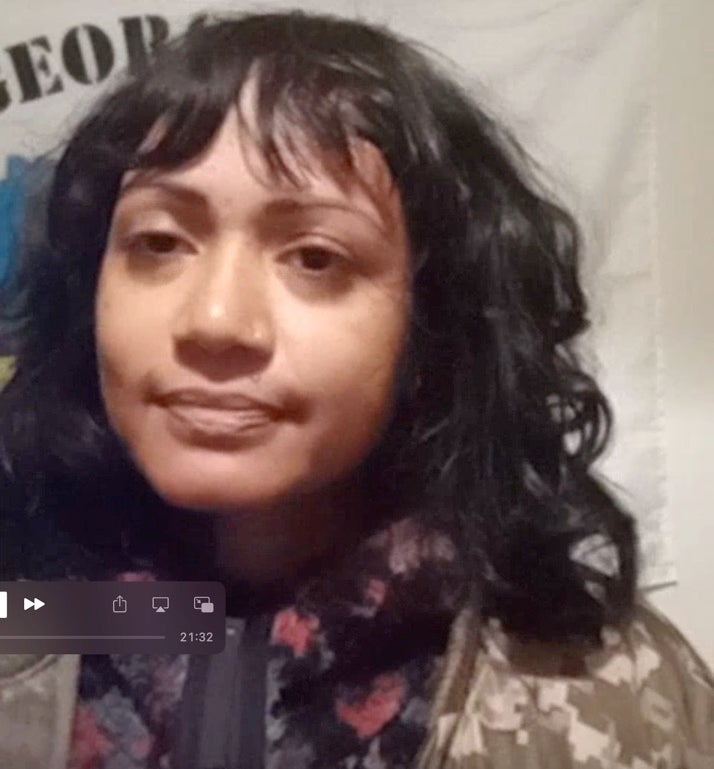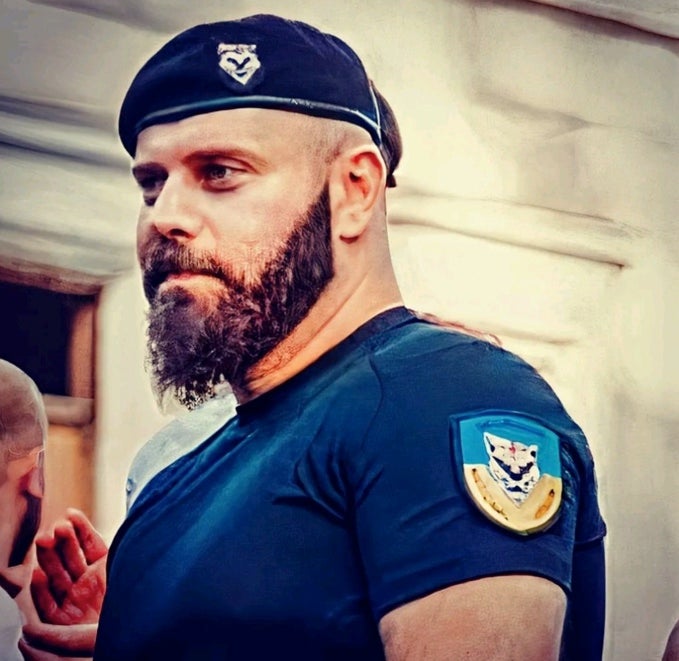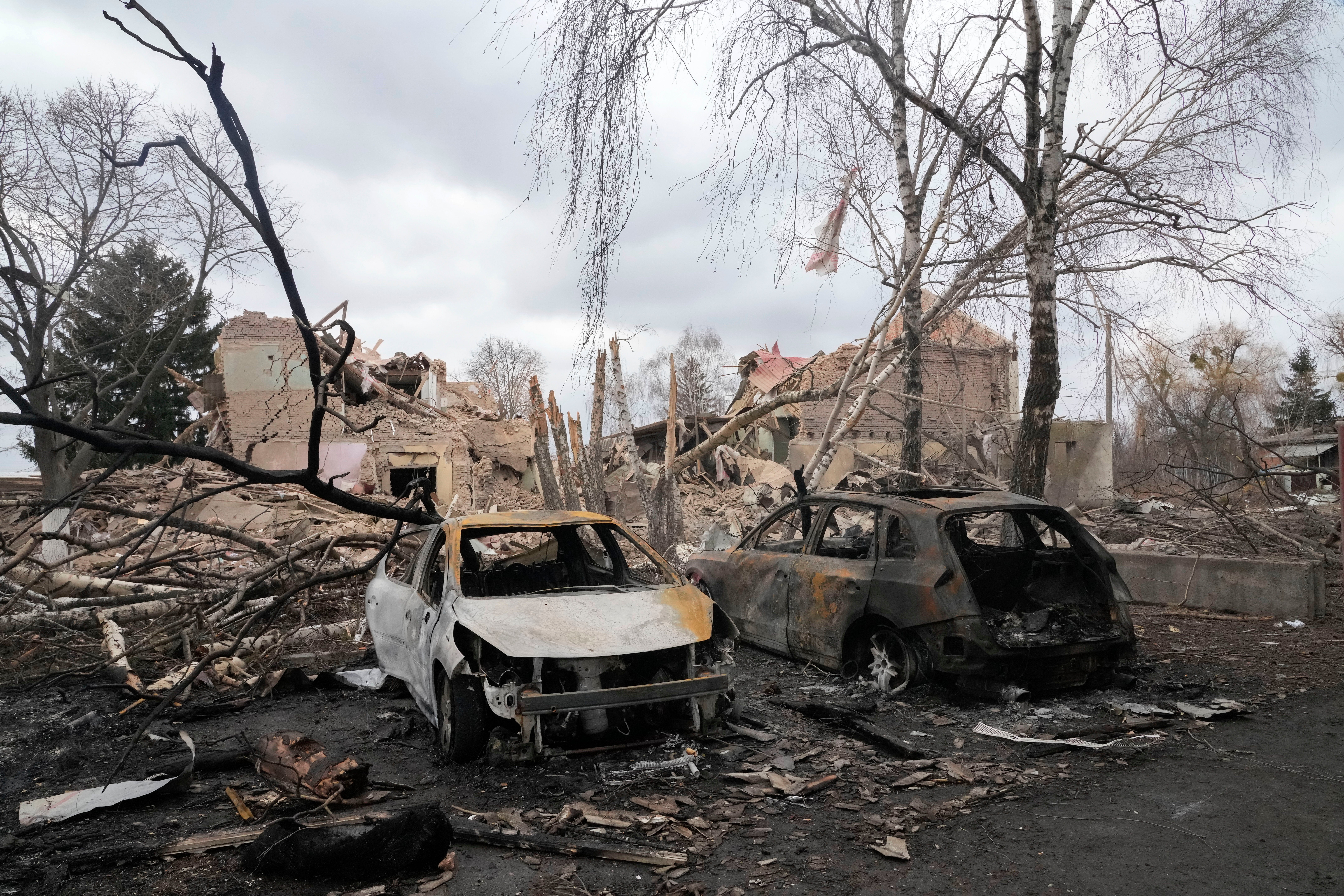US nurse on why she travelled to Ukraine’s front line: ‘Everyone deserves peace’
Exclusive: Sonam Christopher, a 39-year-old nurse from Oregon, speaks to The Independent from an undisclosed location in Kyiv where she is providing medical aid to Ukrainians
Your support helps us to tell the story
From reproductive rights to climate change to Big Tech, The Independent is on the ground when the story is developing. Whether it's investigating the financials of Elon Musk's pro-Trump PAC or producing our latest documentary, 'The A Word', which shines a light on the American women fighting for reproductive rights, we know how important it is to parse out the facts from the messaging.
At such a critical moment in US history, we need reporters on the ground. Your donation allows us to keep sending journalists to speak to both sides of the story.
The Independent is trusted by Americans across the entire political spectrum. And unlike many other quality news outlets, we choose not to lock Americans out of our reporting and analysis with paywalls. We believe quality journalism should be available to everyone, paid for by those who can afford it.
Your support makes all the difference.An American nurse who is volunteering on the Ukrainian frontline has said that it shouldn’t take rising gas prices for her fellow Americans to care about Russia’s invasion of its neighbour.
Sonam Christopher, a 39-year-old nurse from Oregon, told The Independent that the war may seem “distant” to some people in America but they should care about the human rights of the Ukrainian people.
“The way it seems to be affecting Americans now is their gas prices,” she said.
“And unfortunately it shouldn’t take increasing gas prices to be concerned about this conflict.
“We should be concerned about it because it’s a basic human right that is being taken away and peace is something that we should want everywhere, not just on our homeland but for others also.”
She added: “Everyone deserves peace.”
Gas prices soared to record levels this week as the Biden administration banned imports of Russian oil and gas to hurt Moscow’s main revenue source.

Speaking from an undisclosed location in the Kyiv region where they are coming under constant shelling, Ms Christopher said Americans can sometimes be “complacent” about war when it is not on their home soil.
“From my experience, Americans tend to be a little complacent,” she said.
“War is something very distant for many Americans as they haven’t had a war on their soil for a long time – they have sent people overseas so war is something that is overseas for them.
“But this is 2022 and you have another country invading another country, taking away people’s freedom and a tyrannical leader who we have no idea what his mental status is.”
Ms Christopher said she traveled to Ukraine as a volunteer to provide medical aid on the frontline of the war because she couldn’t just “sit around and watch other people suffer”.
“That’s why I became a nurse – to help people, people in need in under resourced areas,” she said.
“I saw what was happening and I wanted to come and help and use my nursing skills and services in some way to help the Ukrainian people.”
She added: “It wasn’t necessarily as an American but as a human and a person who does not like to sit around and watch other people suffer and watch injustice happen.
“I like to act and do something. There have been other times where I have seen things unfold in the news and wanted to help and was unable to but I was able to this time.”
She recalled how she told her family, now based in Texas, about her plans and they were “concerned” but “know I’m here doing what I’ve always wanted to do”.
She then flew from the US to Poland on 1 March and crossed the border into Ukraine the next day, where she has been volunteering with the Georgian National Legion ever since.
Having been a nurse for the last nine years, Ms Christopher has experience working in challenging environments.
She worked in an underprivileged area in Chad as well as working as a travel nurse in the US during some of the pandemic. She has also worked overseas in New Zealand.
However, this is her first combat experience and she has no military training.
“It was a different type of war [in Chad] – a war against poverty and disease and malnutrition,” she said.
“But we’re all human and we just use services in different areas as needed and have to adapt to the situation.”
Since getting to Ukraine, she has been using her medical training to administer aid to troops in need, train other volunteers to deal with combat wounds, and create a makeshift hospital that will be able to take casualties.
Most of the medical care she has provided so far has been related to exposure to the harsh winter weather, she said.
Ms Christopher urged other Americans thinking of coming to Ukraine to help in the country’s fight to “assess your own abilities” and “make the right decision for yourself”.

“We all have different thresholds, we all deal with trauma differently so you need to figure that out as there is no point coming out here and becoming one of the casualties right away as then you won’t be able to help,” she said.
She also warned that people need to have the right motivations.
“You have to figure out what your reasons are for coming here. It’s not for glory, it’s for peace. It’s not so you can use a new gun you just bought,” she said.
“It’s for the people of Ukraine to be able to live in peace and obviously for the world so that any country that feels like ‘this property is ours so we can go and invade them’ we need to send a message to that it is not appropriate.
“Assess all those and if you’re coming for the right reasons then absolutely do.”
That said, she said that there is plenty that Americans can do to support Ukraine from back in the US.
“You are not helpless just because you can’t come,” she said.
“There are lots of things you can do. You can write to your local representative to send aid and pressure them to set up a no-fly zone, you can donate things, donate money if possible.
“There is always something someone can do regardless of your physical capabilities.”
There is also a lot more the US government can do, she added, as she called on Western nations to set up a no-fly zone over Ukraine.
Ukrainian President Volodymyr Zelensky has repeatedly asked Nato to set up a no-fly zone. But Western leaders – including in the US – have rebuffed him, saying it would escalate tensions with Russia.
“They say they don’t want a no-fly zone because they don’t want to start a war,” said Ms Christopher.
“But you see what’s happening in cities like Mariupol where they’re targeting hospitals, maternity and children’s hospitals.
“Obviously it’s a war and we need to do something more about that and if creating a no-fly zone will help then you have to do that.”

Ms Christopher is one of around 50 American volunteers who have travelled to Ukraine and joined the Georgian National Legion since the start of the war, Commander Mamuka Mamulashvili told The Independent.
The Legion is a group of volunteer fighters first set up in 2014 to defend Ukraine in the War in Donbas. The group is now defending Ukraine in its attack from Vladimir Putin’s forces.
Mr Mamulashvili said that the Americans joining include both ex-military members coming as volunteer fighters and medical professionals like Ms Christopher.
He called on the West to “stop crying” over the war and instead take action and “stand up” against Mr Putin.
“It’s time for everyone to start acting and stop crying at their TV screens, saying they are sorry for Ukraine,” he said.
“Kids and women are getting killed in the streets.
“Freedom-loving people need to unite against terrorism and the biggest terrorist Putin and stand together because Putin is threatening the whole world.
“The whole civilised world is under huge threat right now.”




Join our commenting forum
Join thought-provoking conversations, follow other Independent readers and see their replies
Comments